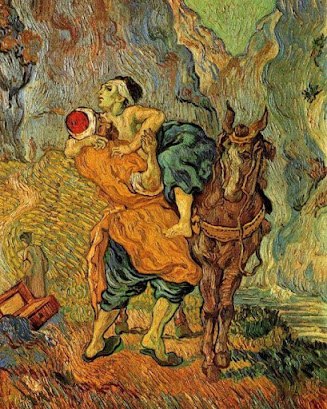A Homily on Neighbor Love
Luke 10.25-37 Psalm 82 Deut 6.1-9 James 2.8-26 Prayer of Invocation Lord of all power and might, the author and giver of all good things: Graft in our hearts the love of your Name; increase in us faithfulness; nourish us with all goodness; and bring forth in us the fruit of good works; through Jesus Christ our Lord, who lives and reigns with you and the Holy Spirit, one God, for ever and ever. Amen. Prayer of Illumination Lord, bless the hearing of your word by equipping us to do what you say, for the life of the world, and for the sake of your reputation. Proclamation Introduction (before the reading of Luke 10.25-37) The story of the ...
